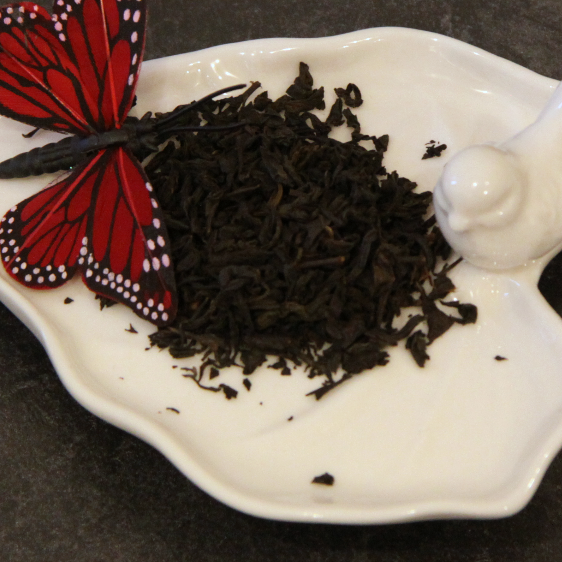
A special smoked tea from the Fujian province of China. The Fukienese word "souchong" means "subvariety" - that is to say it is the leaves from a different section of the Camelia Sinensis plant (or the Tea plant) that grows in the Wuyi mountains of Fujian. The word "Lapsang" means "smoked by pine wood".
When Lapsang Souchong tea was first imported to western European countries it became became quite famous and sought after on international markets, no doubt, due to it's unique and distinct, smokey aroma and flavour.
The best Lapsang is produced in the nature reserve located in the Wuyi mountains, where the high mountains with their thick pine forests and heavy mist provide the ideal environment for growing high quality tea.
Legend says that Lapsang Souchong and the method by which it is made was discovered by accident! During the Qing dynasty an army unit was passing through Xingcun (also known as "Star Village") and they decided to camp in a tea factory filled with fresh leaves awaiting processing. When the soldiers left and the tea workers could return to the factory they realized that it was too late to dry the leaves for the tea to make it to the market in time. So they lit open fires of pine wood to hasten the drying process. Not only did the tea make it to the market on time, but the smokey tea was a sensation!
Lapsang is produced by the following process: leaves are first withered over fires of pine or cypress. after pan-frying and rolling they are pressed into wooden barrels and covered with cloth to ferment until they give off a pleasant fragrance. The leaves are fired again and then rolled into strips. They are then placed in bamboo baskets and hung on wooden racks over smoking pine fires to dry and absorb the smoke flavour.
Get yourself some Lapsang over here.



